
Roztocze: Poland's Enchanting Natural Escape
Roztocze is a picturesque region in southeastern Poland, known for its rolling hills, dense forests, and charming villages. This area is a paradise for nature lovers and outdoor enthusiasts. The Roztoczański National Park, located within the region, offers a variety of trails and paths, perfect for hiking and cycling. The park is home to diverse flora and fauna, including some rare species that are a treat to spot. The region is also rich in history and culture. You can explore traditional wooden architecture in villages like Zwierzyniec and Susiec. The local cuisine is another highlight, with regional dishes that reflect the agricultural heritage of the area. Don't miss trying pierogi, a type of filled dumpling, and other local specialties at the small, family-run restaurants scattered throughout the region. Roztocze's rivers and streams offer opportunities for kayaking and fishing, while the serene landscapes provide a perfect backdrop for relaxation. Whether you're looking to engage in outdoor activities or simply unwind in nature, Roztocze offers a tranquil and enriching experience.
Local tips in Roztocze
- Visit during spring or autumn for the best weather and fewer tourists.
- Rent a bike in Zwierzyniec to explore the scenic trails easily.
- Try local dishes like pierogi and kiełbasa at family-run restaurants.
- Carry cash, as some rural areas may not accept credit cards.
- Bring comfortable hiking shoes for exploring the national park.
Roztocze: Poland's Enchanting Natural Escape
Roztocze is a picturesque region in southeastern Poland, known for its rolling hills, dense forests, and charming villages. This area is a paradise for nature lovers and outdoor enthusiasts. The Roztoczański National Park, located within the region, offers a variety of trails and paths, perfect for hiking and cycling. The park is home to diverse flora and fauna, including some rare species that are a treat to spot. The region is also rich in history and culture. You can explore traditional wooden architecture in villages like Zwierzyniec and Susiec. The local cuisine is another highlight, with regional dishes that reflect the agricultural heritage of the area. Don't miss trying pierogi, a type of filled dumpling, and other local specialties at the small, family-run restaurants scattered throughout the region. Roztocze's rivers and streams offer opportunities for kayaking and fishing, while the serene landscapes provide a perfect backdrop for relaxation. Whether you're looking to engage in outdoor activities or simply unwind in nature, Roztocze offers a tranquil and enriching experience.
When is the best time to go to Roztocze?
Iconic landmarks you can’t miss
Rezerwat przyrody Nad Tanwią
Explore the natural wonders of Rezerwat Przyrody Nad Tanwią, a serene nature preserve in Poland, perfect for hiking, wildlife watching, and peaceful retreats.
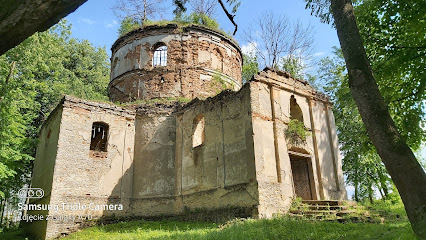
Roztocze National Park
Experience the stunning beauty and diverse wildlife of Roztocze National Park, a must-visit destination for nature lovers in Poland.
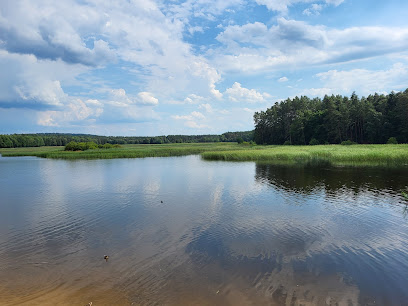
Czartowe Pole
Explore the serene landscapes and rich biodiversity of Czartowe Pole Nature Preserve, a tranquil escape in Jozefow, Poland, perfect for outdoor adventures.
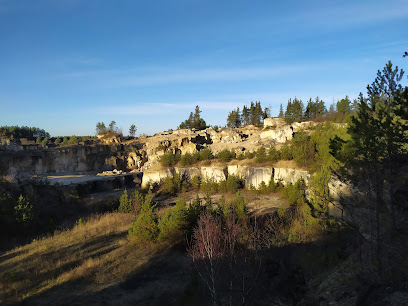
Zagroda Guciów
Experience the beauty of Polish rural life at Zagroda Guciów, where tradition and nature come together for an unforgettable visit.
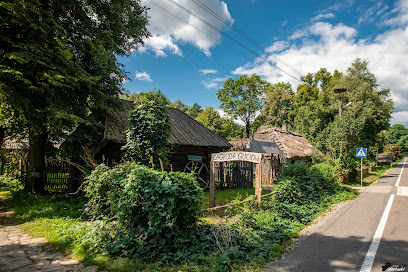
Stawy Echo
Experience the serene beauty of Stawy Echo, a picturesque park featuring tranquil lakes and lush greenery, perfect for relaxation and nature lovers.
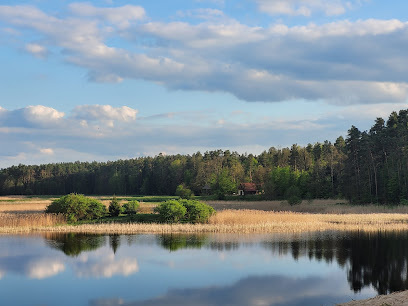
Zwierzyńczyk
Explore Zwierzyniec: A picturesque Polish gem filled with stunning nature, rich history, and delightful local culture, perfect for an unforgettable travel experience.
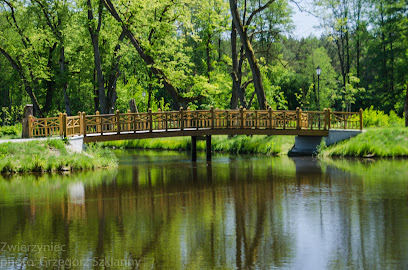
Baszta Widokowa w Józefowie
Discover Baszta Widokowa in Józefów: A Scenic Tower Offering Breathtaking Views and a Serene Escape into Nature.
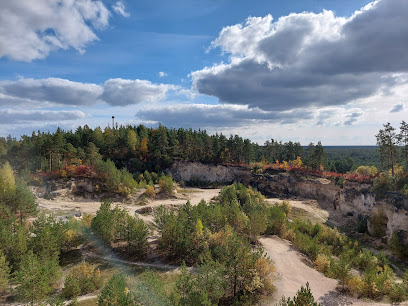
Baszta Widokowa
Experience breathtaking views and serene landscapes at Baszta Widokowa, a must-see scenic spot in Józefów, Poland.
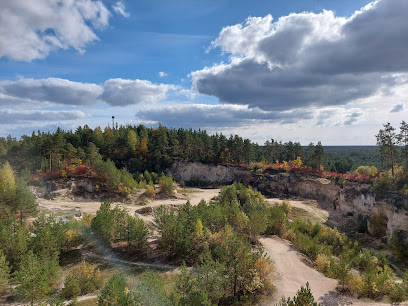
The Roztocze National Park Museum & Centre for Education
Discover the rich natural and cultural heritage of Roztocze at the National Park Museum, a perfect blend of education and stunning landscapes.
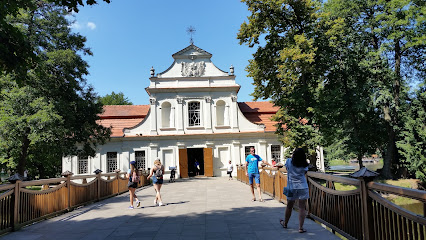
White Hill - lookout tower
Experience the serene beauty of Zwierzyniec at the White Hill Lookout Tower, where stunning views and nature await every visitor.
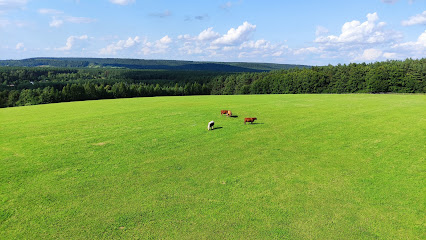
Uroczysko Kruczek
Discover the cultural heritage of Janów Lubelski at Uroczysko Kruczek, an enchanting museum and tourist attraction amidst serene landscapes.

Etno Roztocze - Ogród Zabaw
Experience family fun and cultural richness at Etno Roztocze - Ogród Zabaw, a delightful playground in the heart of Poland's scenic Roztocze region.
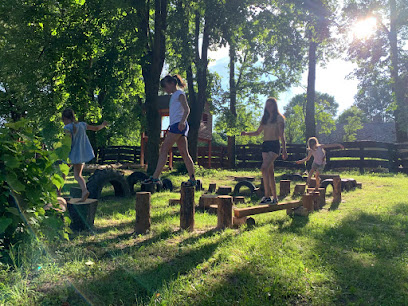
Rezerwat ścisły Bukowa Góra na Roztoczu
Explore the breathtaking landscapes and wildlife of Rezerwat Ścisły Bukowa Góra, a serene nature preserve in Roztocze, perfect for outdoor enthusiasts and families.
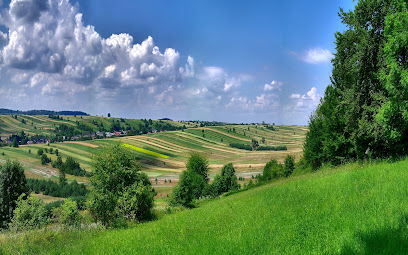
Uroczysko Belfont
Experience the tranquility and natural beauty of Uroczysko Belfont, a breathtaking tourist attraction in Stara Huta, Poland.
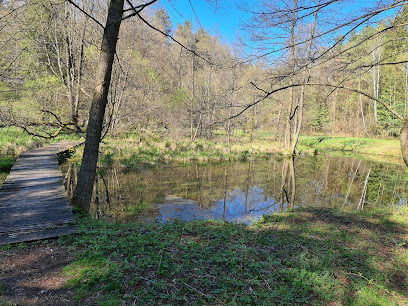
Krasnobród landscape park
Discover the natural wonders of Krasnobród Landscape Park, Poland's hidden gem for outdoor adventures and breathtaking scenery.
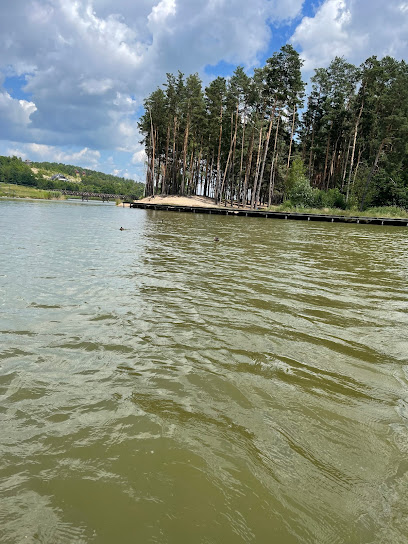
Unmissable attractions to see
Roztocze National Park
Explore the breathtaking landscapes and rich biodiversity of Roztocze National Park, a must-visit destination for outdoor enthusiasts and nature lovers.
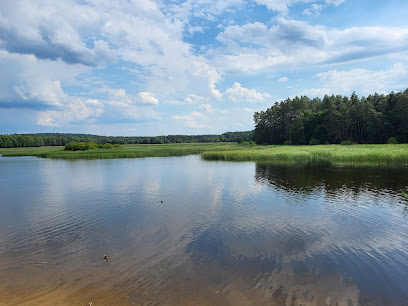
Wodospad na Jeleniu
Explore Wodospad na Jeleniu, a breathtaking waterfall in Poland, perfect for nature lovers seeking tranquility and stunning views.
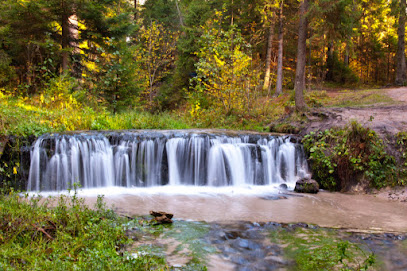
Stawy Echo
Explore the serene beauty of Stawy Echo, a picturesque park in Roztocze, Poland, perfect for nature lovers and outdoor enthusiasts.
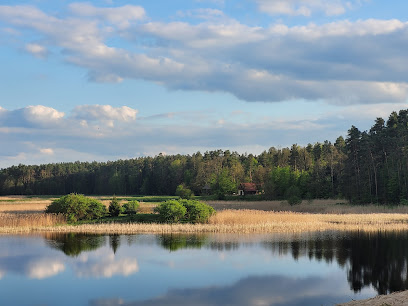
Zwierzyńczyk
Explore the stunning natural beauty and rich cultural heritage of Zwierzyniec, a captivating Polish tourist attraction in Roztocze National Park.
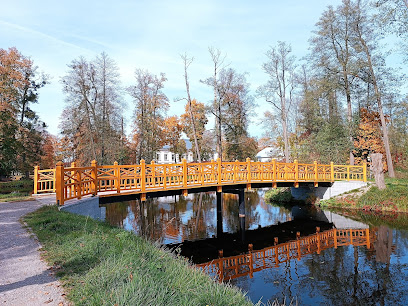
Baszta Widokowa w Józefowie
Discover the stunning Baszta Widokowa in Józefów, offering breathtaking views of the Roztocze region and a perfect escape into nature's beauty.
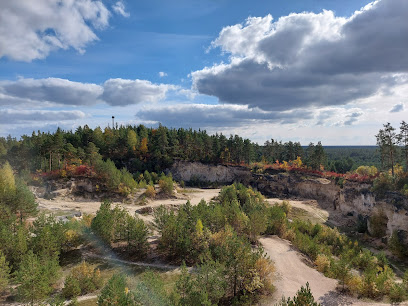
White Hill - lookout tower
Discover the stunning views of Roztocze at White Hill Lookout Tower, a serene escape into nature for every traveler visiting Zwierzyniec.
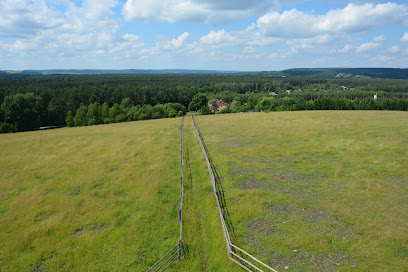
Wodospad w Polance Horynieckiej
Discover the enchanting Wodospad w Polance Horynieckiej, a breathtaking waterfall in Stare Brusno, perfect for nature lovers and adventurous spirits.
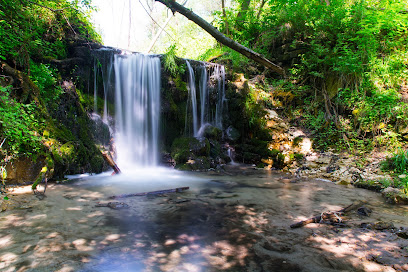
Rezerwat przyrody Grądowe Zbocze
Explore Grądowe Zbocze Nature Preserve: A serene escape into Poland's stunning natural landscapes, perfect for hiking, bird-watching, and relaxation.
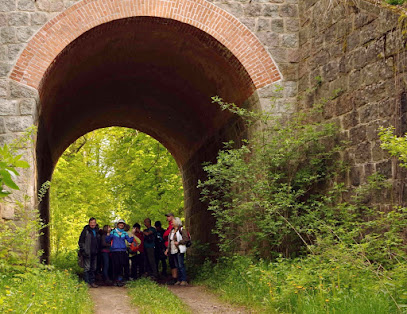
Farm Beekeeping ULIK
Discover the art of beekeeping and taste nature's sweet bounty at Farm Beekeeping ULIK in Mokrelipie, Poland.
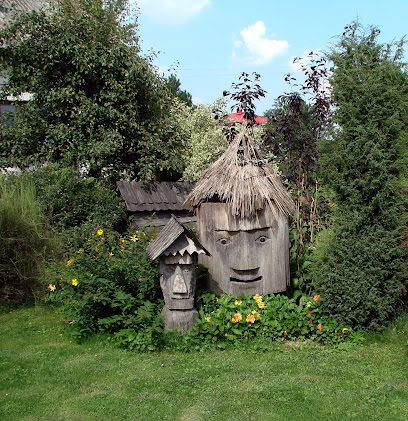
Hodowla Konika Polskiego
Explore the serene beauty and cultural significance of Polish Konik horses at Hodowla Konika Polskiego in Zwierzyniec, a perfect blend of nature and heritage.
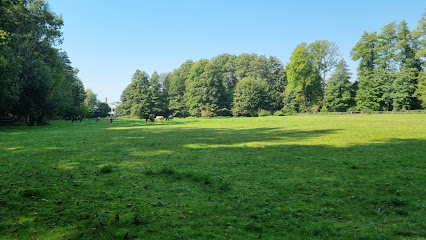
Most niskowodny
Discover the natural beauty and tranquil ambiance of Most Niskowodny, a picturesque tourist attraction in Poland perfect for relaxation and exploration.
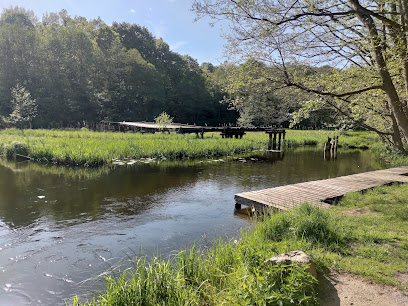
Essential places to dine
Chata Rybaka Pstragi
Experience authentic Polish seafood at Chata Rybaka Pstragi in Bondyrz - where fresh catches meet breathtaking views.
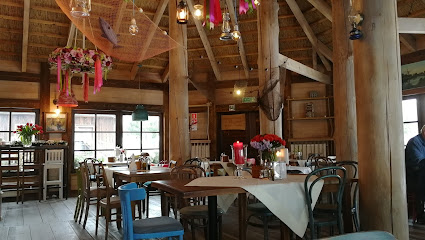
Karczma Młyn
Discover authentic Polish cuisine at Karczma Młyn, a traditional restaurant nestled in beautiful Zwierzyniec.
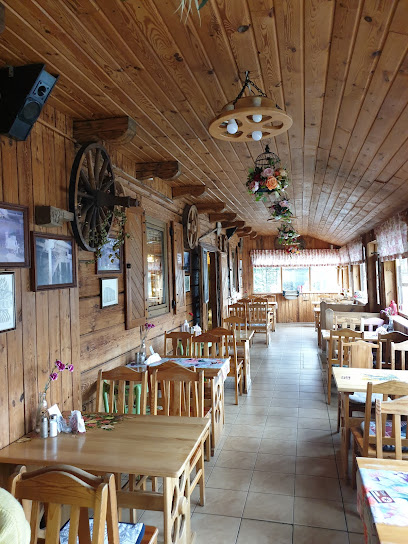
Ryby Lubie
Discover authentic Polish cuisine at Ryby Lubie, where fresh fish meets rustic charm in scenic Lubieszewo.
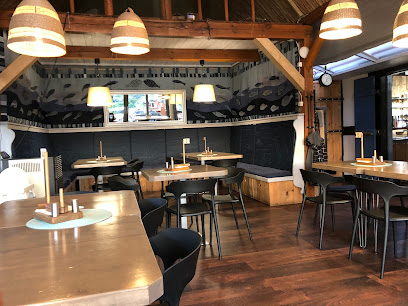
Zwierzogródek
Experience mouthwatering burgers and delightful ambiance at Zwierzogródek, a top-rated restaurant in Zwierzyniec, Poland.
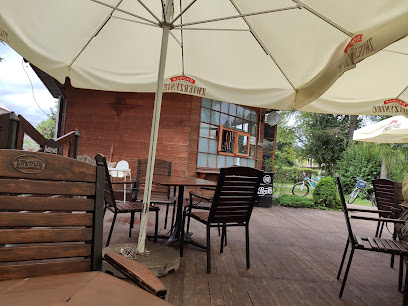
Restauracja Sonata
Discover the essence of Polish cuisine at Restauracja Sonata in Zwierzyniec—where family-friendly dining meets local flavors.
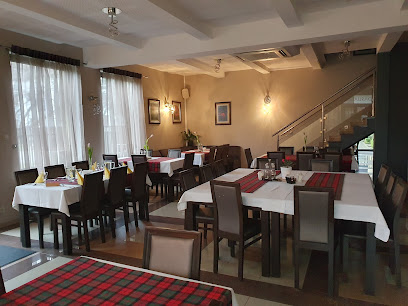
Karczma Dębowy Dwór
Discover the heart of Polish cuisine at Karczma Dębowy Dwór in Ruda Różaniecka - where tradition meets comfort.
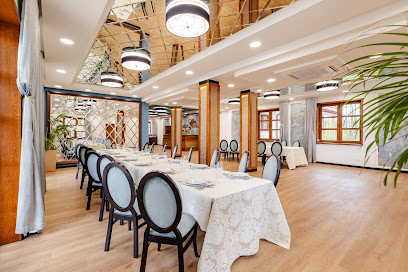
Czar Roztocza
Discover Czar Roztocza: A unique blend of Polish cuisine and warm hospitality amidst stunning natural landscapes.
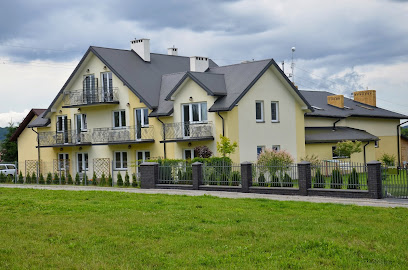
Zagroda Roztocze
Discover the charm of Zagroda Roztocze: where traditional Polish cuisine meets family-friendly bowling in a scenic setting.
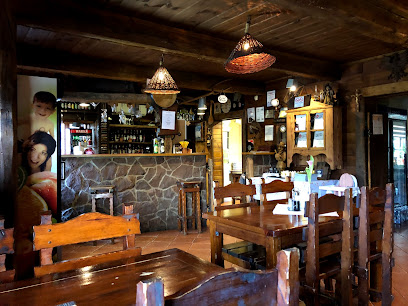
Bar Knieja Na Roztoczu
Experience authentic Polish cuisine at Bar Knieja Na Roztoczu in Józefów - a cozy lunch spot known for its local flavors and welcoming atmosphere.
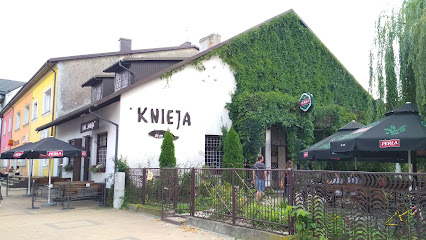
Smak Roztocza
Experience authentic Polish cuisine at Smak Roztocza in Zwierzyniec - where family dining meets regional flavors.
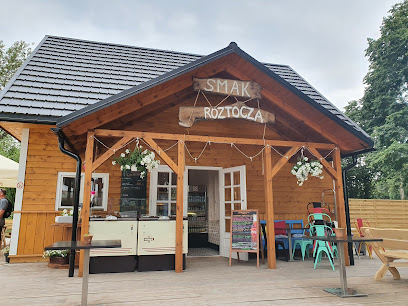
Karczma Pod Szczęśliwym Karpiem
Experience authentic Polish flavors at Karczma Pod Szczęśliwym Karpiem - your go-to fish restaurant in Ruda Różaniecka.
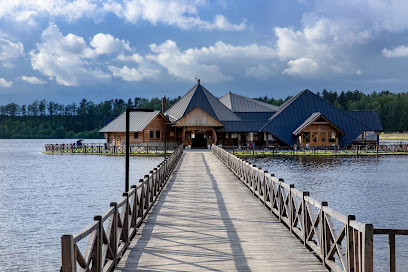
Zajazd Gajówka
Discover authentic Polish cuisine at Zajazd Gajówka in Wywłoczka—where rustic charm meets delectable flavors.
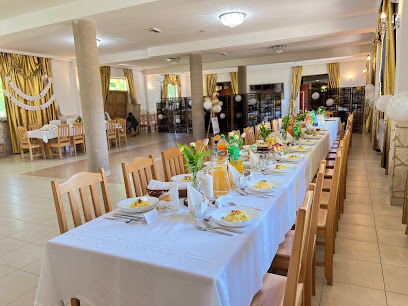
Hotel Perła Roztocza
Discover comfort and entertainment at Hotel Perła Roztocza in Szczebrzeszyn - where modern hospitality meets local charm.
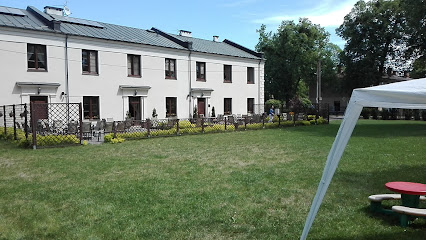
Karczma Zacisze
Discover authentic Polish flavors at Karczma Zacisze in Krasnobród – where tradition meets hospitality.
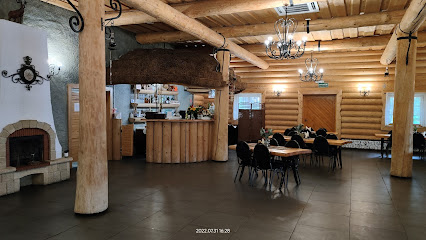
Burger City Burgery Kebab Steki
Discover the delightful tastes of Burger City Burgery Kebab Steki - where kebabs meet burgers in Choszczno's vibrant food scene.
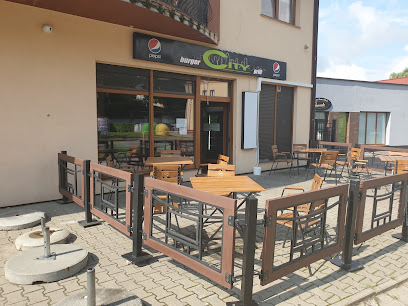
Markets, malls and hidden boutiques
Rezerwat przyrody Nad Tanwią
Discover the tranquil charm of Rezerwat przyrody Nad Tanwią, a nature preserve in Poland offering scenic trails and diverse wildlife for all nature lovers.
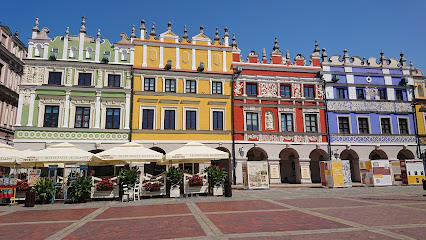
Roztocze National Park
Explore the breathtaking beauty of Roztocze National Park, a lush haven for hikers and nature enthusiasts in southeastern Poland.
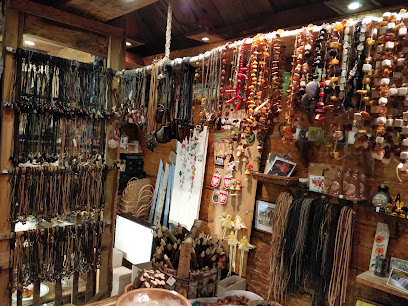
Czartowe Pole
Experience the breathtaking landscapes and diverse wildlife of Czartowe Pole, a premier nature preserve in Józefów, Poland.
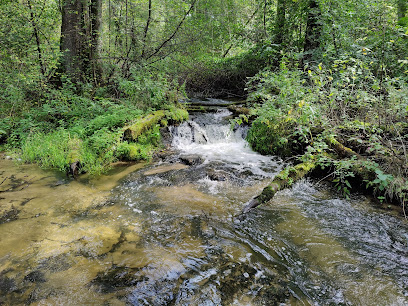
Zagroda Guciów
Experience the enchanting beauty and rich traditions of Zagroda Guciów, a captivating tourist attraction in the heart of Poland.
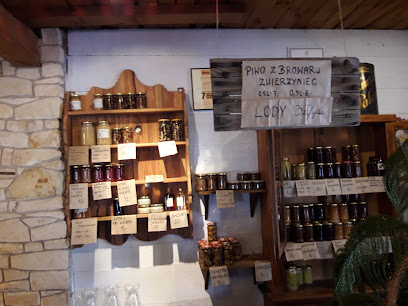
Stawy Echo
Experience the natural beauty of Stawy Echo, a serene park with stunning lakes and lush greenery in Roztocze, Poland, perfect for relaxation and exploration.
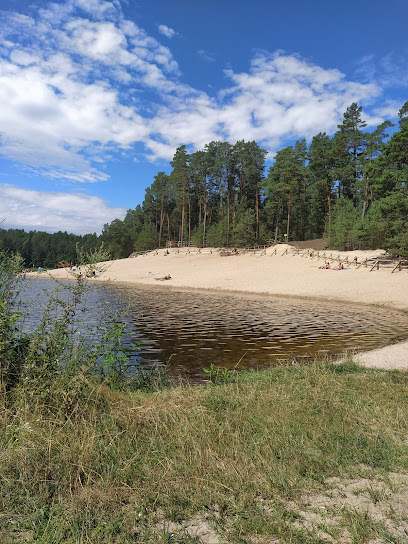
Biedronka
Discover Biedronka in Dolice: Your go-to discount supermarket for local groceries, fresh produce, and unique Polish products.
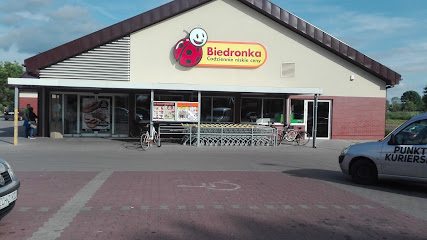
Kamieniołom w Nowinach - Platforma Widokowa
Discover the serene beauty of Roztocze at the Kamieniołom w Nowinach Observation Deck, an ideal spot for breathtaking views and peaceful retreats.
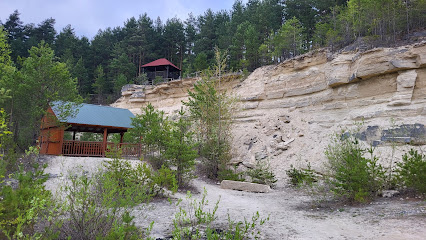
White Hill - lookout tower
Discover the stunning vistas of the Roztocze region at the White Hill Lookout Tower, a must-see destination for nature lovers and photographers.
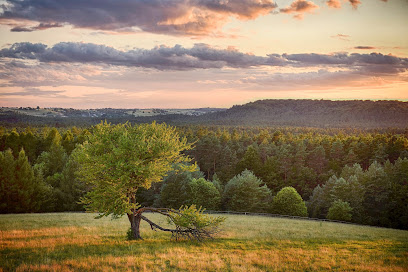
Etno Roztocze - Ogród Zabaw
Experience the ultimate family playground at Etno Roztocze - Ogród Zabaw, where laughter and adventure await in a beautiful natural setting.
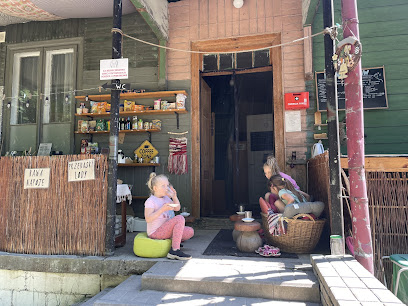
Pepco
Discover stylish clothing and delightful toys for all ages at Pepco in Choszczno, combining quality and affordability in a vibrant shopping experience.
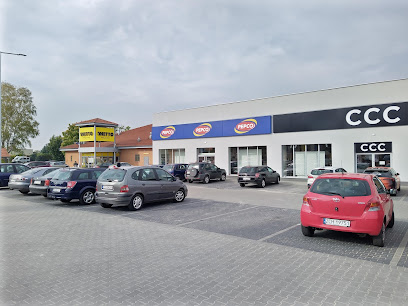
Sklep firmowy Diverse
Explore Sklep firmowy Diverse in Choszczno for trendy clothing and stylish accessories, perfect for refreshing your travel wardrobe.
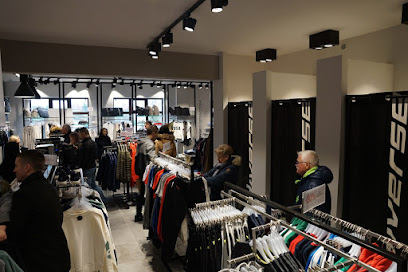
Rodzinny Ośrodek Wypoczynkowy Korkosze
Experience the serene beauty and family-friendly adventures at Rodzinny Ośrodek Wypoczynkowy Korkosze in the heart of Roztocze.
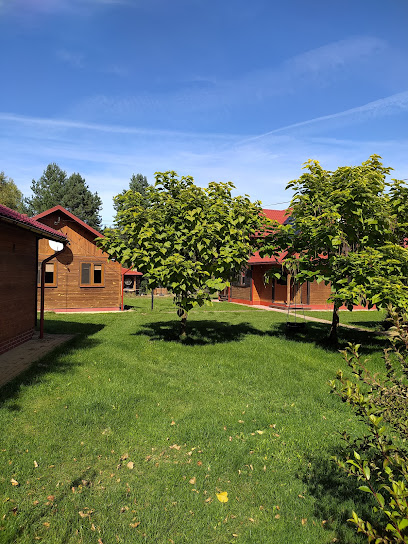
RST ROZTOCZE Sp. z o.o.
Explore the heart of manufacturing in Tomaszów Lubelski at RST ROZTOCZE, where tradition meets innovation in the Roztocze region.
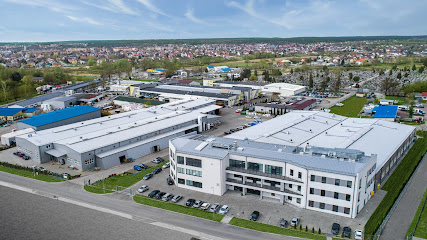
Lewiatan
Explore the vibrant flavors of Poland at Lewiatan Grocery Store in Dobrzany, where local produce meets friendly service for an authentic shopping experience.
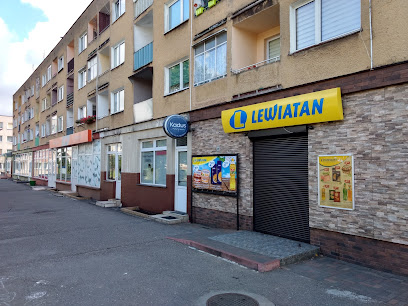
Krasnobród landscape park
Explore the serene beauty and diverse wildlife of Krasnobród Landscape Park, a must-visit nature preserve in Poland for all adventure lovers.
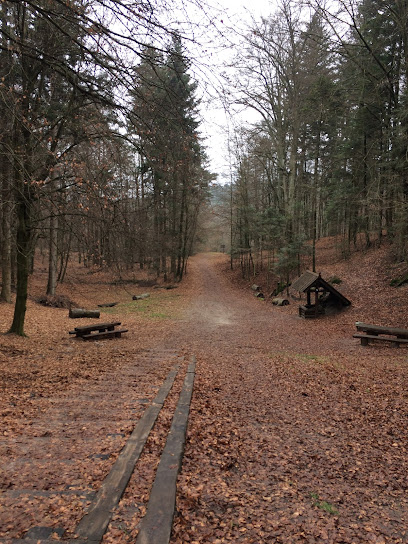
Essential bars & hidden hideouts
Chata Rybaka Pstragi
Discover the heart of Polish cuisine at Chata Rybaka Pstragi, where fresh flavors and warm hospitality await in the picturesque Bondyrz.
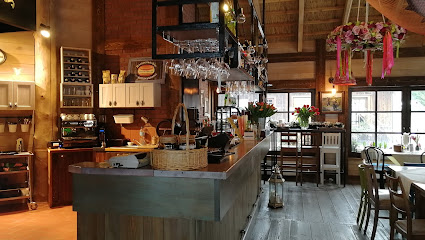
Piwoteka Narodowa Craft Beer & Food
Experience the best of craft beer and delicious food at Piwoteka Narodowa, the premier gastropub in Łódź, Poland.
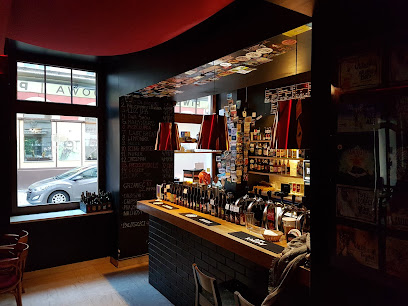
Mercy Brown Cocktails Jazz & Burlesque
Discover the perfect cocktail experience with live jazz and mesmerizing burlesque at Mercy Brown in Kraków's vibrant nightlife scene.
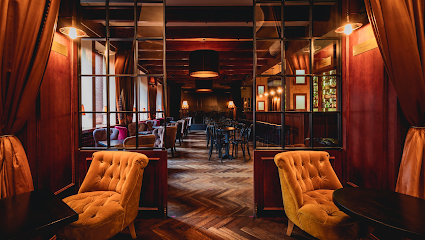
Czar Roztocza
Experience the charm of Czar Roztocza in Zwierzyniec, where delicious Polish cuisine meets warm hospitality in a picturesque setting.
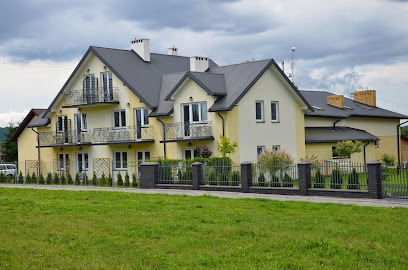
Jeleń na Rykowisku
Discover Warsaw's vibrant brewpub scene at Jeleń na Rykowisku, where craft beer meets Polish culinary delights.
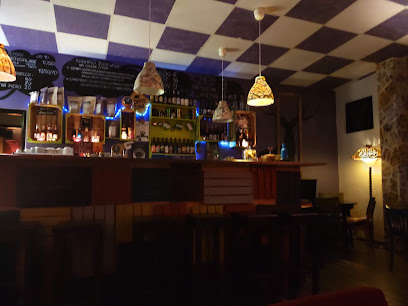
Burgery i Pizza Zamość - Piwiarnia Warka
Experience the best of Zamość with delicious pizzas, juicy burgers, and a lively atmosphere, perfect for food lovers and fun seekers alike.
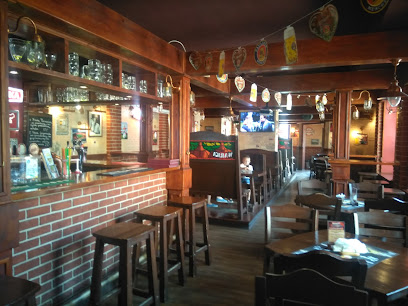
Bar Knieja Na Roztoczu
Savor traditional Polish flavors at Bar Knieja Na Roztoczu, the perfect lunch spot in Józefów for tourists seeking an authentic dining experience.
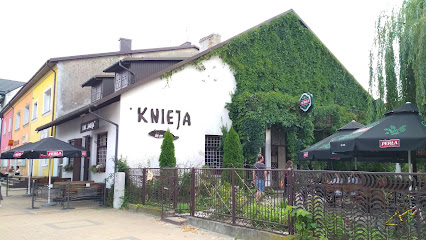
Smak Roztocza
Discover the heart of Polish cuisine at Smak Roztocza, a family-friendly restaurant in Zwierzyniec, where every dish tells a story.
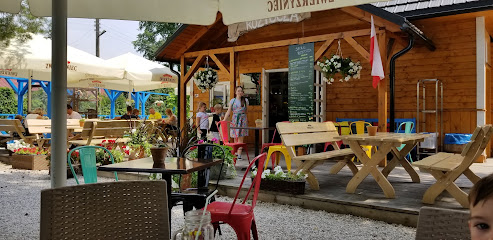
Restauracja Corner Pub
Experience the taste of Zamość at Corner Pub, where local flavors meet a cozy atmosphere in the heart of the city.

Bar u Gargamela
Discover the inviting atmosphere and local flavors at Bar u Gargamela in scenic Huta Szumy, Poland, a delightful spot for travelers seeking authentic experiences.
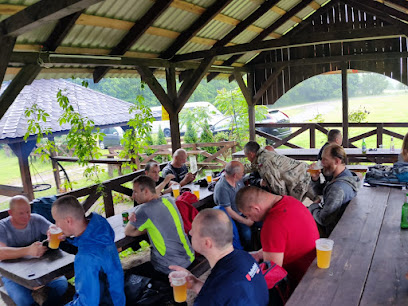
74-Czysta Pub & Grill
Discover the vibrant flavors of 74-Czysta Pub & Grill, a barbecue haven in Myślibórz, perfect for food lovers and fun seekers alike.
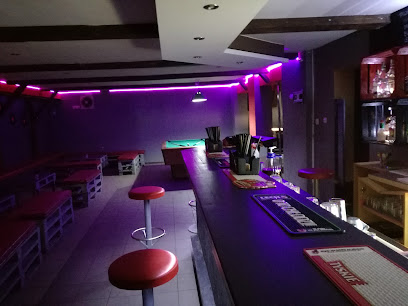
BAR ROZTOCZANKA
Discover the charm of Bar Roztoczanka in Długi Kąt, a cozy bar offering local drinks and a warm atmosphere for tourists seeking relaxation.
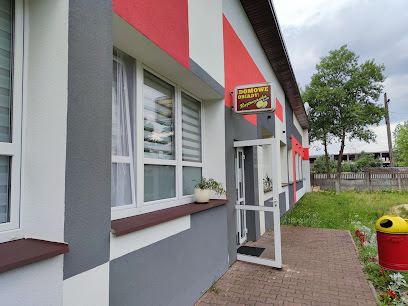
BLUE PUB
Discover the culinary charm of Blue Pub in Zamość, where delightful dishes meet a cozy atmosphere and friendly service.
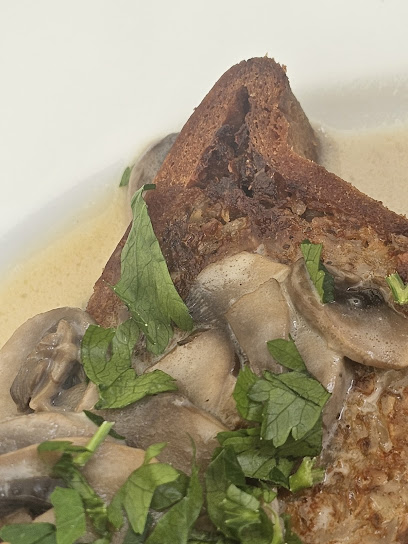
Bar Dwie Kozy
Discover the charm of Bar Dwie Kozy in Danków, a cozy bar offering delightful drinks and a warm atmosphere perfect for relaxing after your adventures.
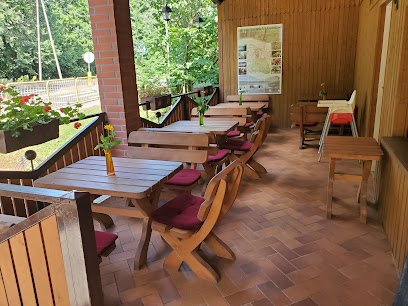
Local Phrases about Roztocze
-
- HelloCześć
[cheh-shch] - GoodbyeDo widzenia
[doh veed-zen-ya] - YesTak
[tahk] - NoNie
[nyeh] - Please/You're welcomeProszę
[proh-sheh] - Thank youDziękuję
[jyen-koo-yeh] - Excuse me/SorryPrzepraszam
[psheh-prah-sham] - How are you?Jak się masz?
[yahk shyeh mahsh] - Fine. And you?Dobrze. A ty?
[doh-bzheh. ah ti] - Do you speak English?Czy mówisz po angielsku?
[chi moo-veesh poh ahn-gyehl-skoo] - I don't understandNie rozumiem
[nyeh roh-zoo-myem]
- HelloCześć
-
- I'd like to see the menu, pleaseChciałbym zobaczyć menu, proszę
[h-chyah-woom zoh-bah-chich meh-noo, proh-sheh] - I don't eat meatNie jem mięsa
[nyeh yem myen-sa] - Cheers!Na zdrowie!
[nah zdroh-vyeh] - I would like to pay, pleaseChciałbym zapłacić, proszę
[h-chyah-woom zah-plah-cheech, proh-sheh]
- I'd like to see the menu, pleaseChciałbym zobaczyć menu, proszę
-
- Help!Pomocy!
[poh-mo-tsi] - Go away!Idź sobie!
[ee-j shoh-b'yeh] - Call the Police!Zadzwoń po policję!
[zahd-zvohn poh poh-leet-syeh] - Call a doctor!Zadzwoń po lekarza!
[zahd-zvohn poh leh-kah-zah] - I'm lostZgubiłem się
[zgoo-bye-wem shyeh] - I'm illJestem chory
[yeh-stem hoh-ri]
- Help!Pomocy!
-
- I'd like to buy...Chciałbym kupić...
[h-chyah-woom koo-peech] - I'm just lookingTylko się rozglądam
[tih-koh shyeh rohz-gwah-dahm] - How much is it?Ile to kosztuje?
[ee-leh toh koh-sh-too-yeh] - That's too expensiveTo za drogie
[toh zah droh-gyeh] - Can you lower the price?Czy możesz obniżyć cenę?
[chi moo-zhesh ohb-nee-zhich tseh-neh]
- I'd like to buy...Chciałbym kupić...
-
- What time is it?Która jest godzina?
[k-too-rah yest goh-dzee-nah] - It's one o'clockJest pierwsza
[yest pyeh-erv-shah] - Half past (10)Pół do dziesiątej
[poow doh djeh-shon-tey] - MorningRano
[rah-no] - AfternoonPopołudnie
[poh-poo-wood-nyeh] - EveningWieczór
[vyeh-choor] - YesterdayWczoraj
[v-choh-rye] - TodayDzisiaj
[dzyi-shai] - TomorrowJutro
[yoo-troh] - 1Jeden
[yeh-den] - 2Dwa
[dvah] - 3Trzy
[tshih] - 4Cztery
[ch-teh-ri] - 5Pięć
[pyehnch] - 6Sześć
[sheshch] - 7Siedem
[shye-dehm] - 8Osiem
[oh-syem] - 9Dziewięć
[dzye-vee-nyeh] - 10Dziesięć
[dzye-shon-tyeh]
- What time is it?Która jest godzina?
-
- Where's a/the...?Gdzie jest...
[g-dyeh yest] - What's the address?Jaki jest adres?
[yah-kee yest ah-drehss] - Can you show me (on the map)?Czy możesz mi pokazać (na mapie)?
[chi moo-zhesh mee poh-kah-zah-ch (nah mah-pyeh)] - When's the next (bus)?Kiedy jest następny (autobus)?
[kyeh-dih yest nah-stehp-nih (ow-toh-boos)] - A ticket (to ....)Bilet (do ...)
[bee-let (doh)]
- Where's a/the...?Gdzie jest...
History of Roztocze
-
Roztocze, a picturesque region in southeastern Poland, boasts a rich history that dates back to early settlement periods. Archaeological findings suggest that the area was inhabited as early as the Neolithic era. During the medieval period, Roztocze became a part of the Kingdom of Poland and witnessed the rise of fortified settlements, which were crucial for the defense and trade routes of the region.
-
During the era of the Polish-Lithuanian Commonwealth (1569–1795), Roztocze flourished both economically and culturally. The region became a melting pot of diverse cultures, including Polish, Ukrainian, and Jewish communities. The town of Zamość, founded in 1580 by Jan Zamoyski, emerged as a significant cultural and intellectual center, often referred to as the 'Padua of the North' due to its Renaissance architecture and vibrant academic life.
-
The late 18th century brought significant upheaval to Roztocze as Poland underwent a series of partitions by Prussia, Austria, and Russia. Roztocze found itself under Austrian rule, becoming part of the Habsburg Empire. This period was marked by economic exploitation and cultural suppression, but it also saw the rise of local resistance movements striving to preserve Polish identity and autonomy.
-
World War I and the subsequent Treaty of Versailles in 1919 reshaped the borders of Europe, leading to the re-establishment of Poland as an independent nation. Roztocze, now part of the Second Polish Republic, experienced a period of reconstruction and cultural revival. The interwar years were marked by the growth of tourism, as people were drawn to Roztocze's natural beauty and historical landmarks.
-
World War II brought devastation to Roztocze. The region was occupied first by Nazi Germany and later by the Soviet Union. The Jewish community, which had been an integral part of Roztocze's cultural fabric, faced annihilation during the Holocaust. Towns such as Zamość and Biłgoraj witnessed horrific atrocities, and the war left deep scars on the local population and infrastructure.
-
After World War II, Roztocze became part of the People's Republic of Poland under communist rule. This era was characterized by state control and economic challenges, but also by efforts to rebuild and modernize the region. The establishment of the Roztocze National Park in 1974 marked a significant step towards preserving the natural and historical heritage of the area.
-
The fall of communism in 1989 and Poland's subsequent integration into the European Union in 2004 ushered in a new era for Roztocze. The region has since seen a resurgence in tourism, driven by its unique blend of natural landscapes, historical sites, and cultural diversity. Modern Roztocze continues to celebrate its rich heritage while embracing sustainable development and international cooperation.
Roztocze Essentials
-
Roztocze is located in southeastern Poland, spanning the Lublin and Subcarpathian Voivodeships. The nearest major international airport is John Paul II Kraków-Balice International Airport, approximately 200 kilometers away. From Kraków, you can rent a car, take a bus, or travel by train to reach Roztocze. Alternatively, you can fly into Warsaw Chopin Airport and take a domestic flight to Rzeszów, followed by a bus or train to Roztocze. The region is also accessible by car from various parts of Poland and neighboring countries.
-
Roztocze offers various transportation options. Buses and minibuses connect major towns and villages within the region. Renting a car is highly recommended for exploring remote areas and natural attractions at your own pace. Cycling is also popular, with many scenic routes available. Local taxis are available in larger towns, but may be scarce in rural areas. Train services are limited but can be used to reach major towns such as Zamość and Tomaszów Lubelski.
-
The official currency in Poland is the Polish Złoty (PLN). Credit cards are widely accepted in hotels, restaurants, and larger shops, but it is advisable to carry some cash, especially in smaller towns and rural areas. ATMs are available in major towns such as Zamość and Krasnobród. Ensure you have enough cash for purchases in markets, small shops, and local eateries.
-
Roztocze is generally a safe region for tourists. Standard precautions should be taken, such as avoiding poorly lit areas at night and keeping an eye on personal belongings in crowded places. There are no specific high-crime areas targeting tourists, but it is always wise to stay vigilant. Petty theft can occur, so it's important to secure your valuables and avoid displaying expensive items.
-
In case of emergency, dial 112 for immediate assistance. This number connects you to emergency services including police, fire, and medical help. Major towns have medical facilities and pharmacies where you can seek treatment for minor health issues. It is recommended to have travel insurance that covers medical emergencies. Local police stations are available in towns such as Zamość and Tomaszów Lubelski.
-
Fashion: Do dress comfortably and appropriately for outdoor activities. Avoid overly revealing clothing, especially in religious sites. Religion: Do respect religious customs and traditions. When visiting churches, dress modestly and cover your head if required. Public Transport: Do purchase tickets in advance and validate them. Don't eat or drink on public transport. Greetings: Do greet people with a friendly 'Dzień dobry' (Good day) and a handshake. Eating & Drinking: Do try local dishes and beverages. Don't refuse food or drink offerings, as it may be considered impolite.
-
To experience Roztocze like a local, visit the regional markets in towns like Zamość and Tomaszów Lubelski, where you can buy fresh produce and traditional Polish goods. Engage with locals, as they are often friendly and willing to share stories about the region's history and culture. Don't miss exploring the Roztocze National Park for its beautiful landscapes and wildlife. Participate in local festivals and events to immerse yourself in the local culture. Renting a bike and following the Green Velo cycling route is a great way to see the countryside.
Trending Landmarks in Roztocze
-
Rezerwat przyrody Nad Tanwią
-
Roztocze National Park
-
Czartowe Pole
-
Zagroda Guciów
-
Stawy Echo
-
Zwierzyńczyk
-
Baszta Widokowa w Józefowie
-
Baszta Widokowa
-
The Roztocze National Park Museum & Centre for Education
-
White Hill - lookout tower
-
Uroczysko Kruczek
-
Etno Roztocze - Ogród Zabaw
-
Rezerwat ścisły Bukowa Góra na Roztoczu
-
Uroczysko Belfont
-
Krasnobród landscape park
Nearby Cities to Roztocze
-
Things To Do in Poznan
-
Things To Do in Berlin
-
Things To Do in Bydgoszcz
-
Things To Do in Potsdam
-
Things To Do in Torun
-
Things To Do in Rostock
-
Things To Do in Gdansk
-
Things To Do in Sopot
-
Things To Do in Wroclaw
-
Things To Do in Dresden
-
Things To Do in Elblag
-
Things To Do in Leipzig
-
Things To Do in Lodz
-
Things To Do in Lubeck
-
Things To Do in Opole











